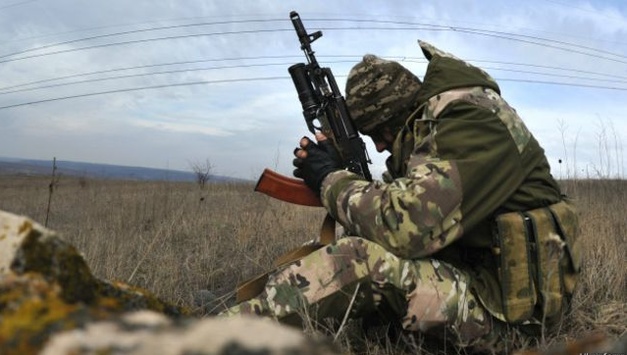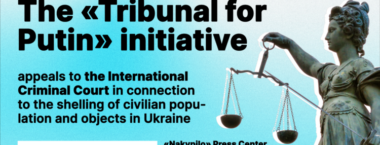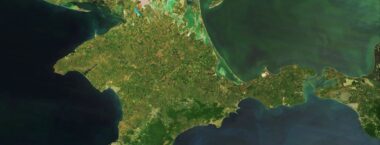On August 30, 2017, the Cabinet of Ministers of Ukraine adopted the Decree “On Allowances for Military Personnel, Commanders and Regular Staff, and Some Other Persons”. Despite the text of the Decree is not available at the official webpage of the Government, it is still available at the following link: http://www.ukrmilitary.com/2017/09/postanova-groshove-tekst.html. As Colonel Serhii Halimskyi, Deputy Director of the Department of Finance of the Ministry of Defense of Ukraine, said during a briefing on September 12, 2017, after the adoption of the Decree, military personnel would be paid more by main allowances, and not by bonuses that currently amount up to 85% of their salaries (the press-release of the briefing can be found under the link: http://www.mil.gov.ua/news/2017/09/12/vpershe-za-chasiv-nezalezhnosti-kardinalno-zmineno-pidhodi-do-narahuvannya-groshovogo-zabezpechennya-vijskovosluzhbovczyam-zbrojnih-sil-ukraine/).
It is good that the state takes care of the material security of military personal. But in addition to raising wage rates, the issue of payments to members of the armed forces who belong to combat losses, namely missing persons or captives, remains important. It turns out that everything is not so simple and well-regulated.

In accordance with clause 6 of Article 9 of the Law of Ukraine “On Social and Legal Protection of Military Men and Members of Their Families” for military personnel captured or interned in neutral states or missing persons, salaries still have to be paid in the same amount as was the official salary at the last place of service, plus salary for military rank, bonuses for years of service, other monthly additional types of bonuses taking into account changes in years and in rank, and norms of monetary payments. The families of the servicemen receive monthly payments, including supplementary and other types of monetary support, in the order and the amount established by the Cabinet of Ministers of Ukraine. Thus, in September 2016, a general provision was introduced to the said Law; it obliged the military units to provide payments to the families of missing or captured soldiers.
The list of additional types of payments for servicemen is determined by Decree No. 1294 of the Cabinet of Ministers of Ukraine “On the Structure and Conditions of Allowances for Military Personnel, Commanders and Regular Staff, and Some Other Persons” of November 7, 2007 (text of the Decree – at the link: http://zakon3.rada.gov.ua/laws/show/1294-2007-%D0%BF/page). In addition, payments for direct participation in ATO are regulated separately by Decree No. 18 of the Cabinet of Ministers of Ukraine “Some Issues of Cash Assistance for Military Personnel, Commanders and Regular Staff, and Some Other Persons” of January 20, 2016: http: // zakon3.rada.gov.ua/laws/show/18-2016-%D0%BF. The size of payments varies depending on the location of a military unit in the ATO zone, whether it is a front-line or third line, or a military position. Here are already the problematic issues: how is the record of captives or missing persons kept by military units? Which payment should be made?
The Instruction on recording personnel of the Armed Forces of Ukraine, approved by Order No. 333 of the Ministry of Defense of Ukraine of 26 May 2014, specifies that killed, dead, missing, captured persons are irreversible combat losses. Soldiers, who were eliminated due to death, injury, illness and for other reasons, are recorded according to the following order:
- In a branch and platoon – concerning all members of the armed forces, who quitted service, commanders of the branches and platoons report to their immediate commanders (chief) every day during battles and after checking the presence of personnel after the battles;
- In a troop (battery), a separate unit – all soldiers, who quitted service, are included in the list of staff, who quitted service. The list is submitted daily to the commander of the battalion (division), to the headquarters of the military unit;
- In battalions (divisions, squadrons) – the data from the above-mentioned lists of personnel, who left troops (batteries) and individual units, about losses of personnel, is checked against the data provided by health facilities of the military unit, a general list of personnel, who quitted service, on the personnel of the battalion (division, squadron), which is provided daily to the military headquarters along with the daily record (more detailed text of the Instruction at the link: http://zakon3.rada.gov.ua/laws/show/z0611-14/page4).
In addition to the fixed control and personnel records, it is important that the servicemen who have irrevocably quitted, should be excluded from the list of personnel of a military unit. In accordance with paragraph 1.18 of the Instruction, missing persons and those who have not returned in due time from vacations, holidays or health care institutions, as well as those who have deserted from the army, are excluded after careful search and investigation of circumstances of their desertion or non-return to a unit, but not later than fifteen days from the day of disappearance, desertion and expiration of a vacation or the period of return to the part notified by the health care institution. Consequently, after conducting an internal investigation into a military unit, the fact of the disappearance of a serviceman must be deduced from the number of personnel of the unit. That is, a person seems to be alive, but his/her fate is unknown, but a military unit does not bear responsibility for him/her.
Let’s look at another act, adopted later. Clause 6 of Decree No. 884 of the Cabinet of Ministers of Ukraine “On Approval of the Procedure for Payments to Families of Military Personnel Captured or Interned in neutral states or missing person” of November 30, 2016 stipulates that payments to family members of servicemen is carried out before the full clarification of circumstances of the captivity of servicemen or hostages, their internment or dismissal, or their recognition as missing or dead, following the order established by the Law. In all cases, payments are made no longer than until the day the soldier is removed from the military personnel list (institution, organization) (full text of the Decree is available at the link: http://zakon2.rada.gov.ua/laws/show/884-2016-%D0%BF/paran9#n9).
There is a misunderstanding. On the one hand, in accordance with the order of personnel recording, captured or missing persons should be removed from the list of personnel; on the other hand, the order of payments determines that they must be made before the person’s release or clarification of his/her fate. This is a striking example of the inconsistency of the law. There is a collision that needs to be solved based on the general theory of law. The legal force in this case has the norm:
- adopted chronologically later;
- an act of a higher legal force;
- a special rule that more precisely and fully regulates specific relationships.
Therefore, it is logical to conclude that the norm, approved by Decree No. 884 by the Cabinet of Ministers of Ukraine, has to be applied. But there are still some problematic aspects.
In accordance with the provisions of the Law of Ukraine “On Social and Legal Protection of Military Men and Members of Their Families”, the payments are not assigned to members of the armed forces, who became captives voluntarily, left the military units (places of service) willfully or deserted from the Armed Forces of Ukraine, other military units and law enforcement agencies established in accordance with the laws of Ukraine. The fact of the unauthorized abandonment of the military unit should only be established in the course of an objective internal investigation conducted in the military unit. That is, in this case, everything will depend on the completeness and independence of the information on the fate of a serviceman (for example, the issue of the unauthorized abandonment of the military unit and its consequences will be examined in following op-eds).
Another very interesting issue in the context of additional monetary payments is a place of captivity. That is, if payments for direct participation in ATO varies according to the place of location of a person in the conflict zone, how exactly the place of captivation should be considered: according to the place of location of a unit, or to consider him/her as one that is directly in the zone of active military operations? Legally, this is not clearly regulated. As stated in Decree No. 18 of the Cabinet of Ministers of Ukraine of January 20, 2016, amount of payment is proportionate to the time of participation in military conflicts or antiterrorist operations, and other events in a particular period. It would be logical to secure maximum payments for captives, taking into account situations and circumstances, in which the person is.
Time flies. But in a peaceful environment, it feels not so painfully, as in captivity or in uncertainty. Despite the fact that a captive or missing person is considered as an irreversible combat loss, he/she still has the family; for them, the ground crumbled under their feet. The issue of payments to victims’ families should have a clear scheme, without additional questions. These payments are not in any way the compensation for pecuniary and non-pecuniary damage. But still, no one takes care of settling compensation for both captives’ and missing persons’ families.
Text by Alina Pavliuk, a lawyer of Strategic Litigation Centre of UHHRU,
Photo by glavcom.ua




